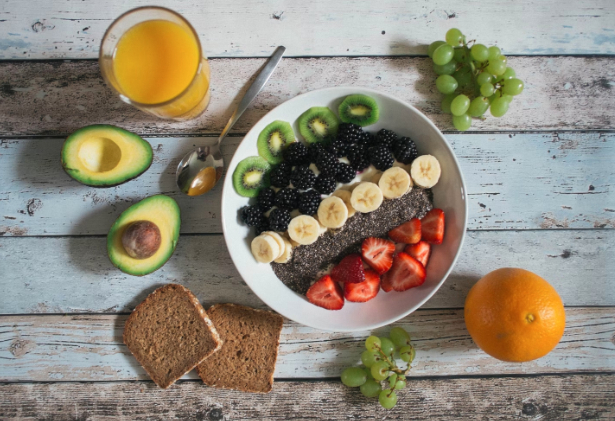Is it true that diet simplification can help you to achieve better health and wellness outcomes?
Is it true the simplifying your diet can help you to lose weight faster and at a more efficient rate?
These are sound bites that are commonly quoted online and on social media.
They’re generally used in association with diets like the carnivore diet, the Paleo diet, the Mediterranean diet, etc.
These diets all have a few things in common.
They espouse the benefits of eating mostly whole foods, cutting out processed foods, and being very intentional about the ingredients you’re eating.
But is it true?
Is there any truth to this?
Or is counting calories really all you need?
These are great questions. Let’s break it down and discuss it.
1. In Our Experience, Diet Simplification Works
Our writers tend to be heavily invested in their own health and wellness.
And when we asked them this question, they reported back (by a wide majority) that diet simplification and avoiding processed food was an absolute key necessity to a sustainable long-term diet that facilitated proper health and wellness.
This is especially true if you’re trying to achieve weight loss goals.
The reason for this is pretty simple.
Processed foods tend to be extremely calorie dense with very little nutritional value.
In other words, when you take pure math and satiation into account, you’re getting a lot more bang for your buck in every possible way when you eat a bowl of oatmeal, a potato, or a steak as opposed to a heavily processed lump of sugary bread, cake, sugary breakfast cereal, etc.
What do we mean by processed foods?
Processed foods are basically foods that have a long list of ingredients on the label.
The alternative to processed foods would be simple foods—or ‘whole foods.’
In other words… a steak, a carrot, a potato, an egg, etc.
Note: It’s important to understand that the primary DANGER of a simplified diet is a lack of nutritional diversity. So it’s really important that if you do simplify your diet, that you make sure to still get all of your essential vitamins, minerals, and nutrients.
2. Diet Simplification Also Helps To Combat Inflammation
When it comes to health, wellness, fitness, and even weight loss, inflammation is an interesting problem.
For the most part, we’re never really 100% sure what causes it.
We just know that it’s an issue that can mess with your health, make you feel less energetic, and also impact the quality of your energy, mobility, etc.
Well, when you really simplify your food intake to the point where you’re performing a basic elimination diet, what you’re actually doing is cutting out a bunch of extra foods that could potentially be playing the role of ‘allergens.’
When you conduct an elimination diet, you’ll generally tend to feel really good—despite the fact that the diet will tend to be more bland and boring than your usual food choices.
Diet simplification is a natural method for incorporating this principle into your habits—but to a less extreme degree.
3. Processed Foods Often Contain Processed Sugars And Unhealthy Oils
Another thing to take into account is the fact that highly processed foods just contain higher levels of all of the bad stuff we’re not supposed to eat.
They also tend to be very nutrient-light.
For example, if you read the ingredients on the back of a package of a cheap frozen pizza, you’re quickly going to realize that those pizzas are going to contribute a lot of unhealthy processed sugar and other additives to your diet without balancing that out with a bunch of extra nutrition.
They’re also packed full of calories.
Why?
Because all the ingredients are highly processed.
Most frozen pizzas don’t even have real cheese on top! It’s actually a manufactured cheese product.
This is all bad news for your health and wellness.
You’d be much better off buying some whole wheat flour, making your own pizza crust, making your own tomato sauce out of real tomatoes, chopping up your own meat to put on top of it, and then getting some real cheese to put on top of that.
You’ll still end up with a pizza, but the differences in health, wellness, and nutrition benefits are massive.
That first pizza—the store-bought frozen pizza—may have 25 to 50 different chemical-sounding ingredients on the label—and who knows how many of those may affect you adversely.
Whereas, there are only about 6 or 7 ingredients in the homemade pizza—which is a highly simplified version.
And this is just overall going to be better for your health, pack in fewer calories, and just, in general, provide a ton of extra nutritional value.












